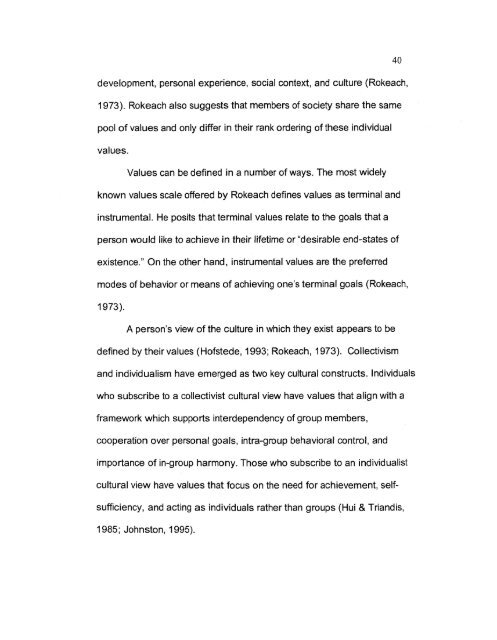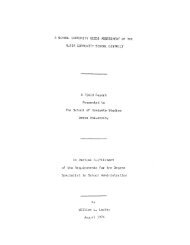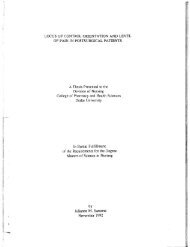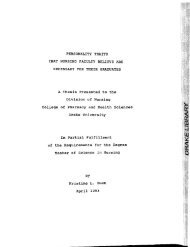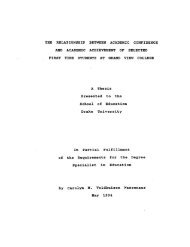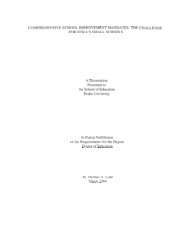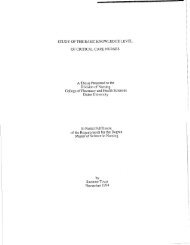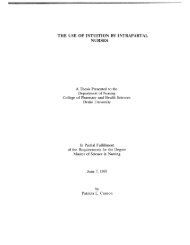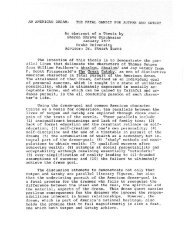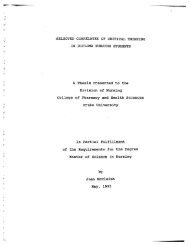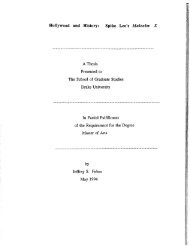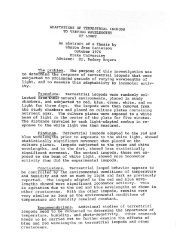LEADERSHIP CHARACTERISTICS OF ... - Drake University
LEADERSHIP CHARACTERISTICS OF ... - Drake University
LEADERSHIP CHARACTERISTICS OF ... - Drake University
Create successful ePaper yourself
Turn your PDF publications into a flip-book with our unique Google optimized e-Paper software.
development, personal experience, social context, and culture (Rokeach,<br />
1973). Rokeach also suggests that members of society share the same<br />
pool of values and only differ in their rank ordering of these individual<br />
values.<br />
Values can be defined in a number of ways. The most widely<br />
known values scale offered by Rokeach defines values as terminal and<br />
instrumental. He posits that terminal values relate to the goals that a<br />
person would like to achieve in their lifetime or "desirable end-states of<br />
existence." On the other hand, instrumental values are the preferred<br />
modes of behavior or means of achieving one's terminal goals (Rokeach,<br />
1973).<br />
A person's view of the culture in which they exist appears to be<br />
defined by their values (Hofstede, 1993; Rokeach, 1973). Collectivism<br />
and individualism have emerged as two key cultural constructs. Individuals<br />
who subscribe to a collectivist cultural view have values that align with a<br />
framework which supports interdependency of group members,<br />
cooperation over personal goals, intra-group behavioral control, and<br />
importance of in-group harmony. Those who subscribe to an individualist<br />
cultural view have values that focus on the need for achievement, self-<br />
sufficiency, and acting as individuals rather than groups (Hui & Triandis,<br />
1985; Johnston, 1995).<br />
40


